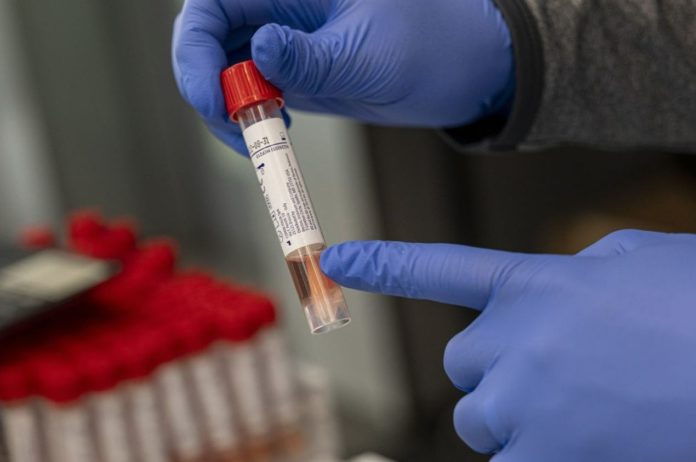South African scientists think they have tentative answers to two of the three major questions surrounding the Omicron coronavirus variant: Is it more contagious than previous versions, is it more effective at circumventing the body’s immune defences, and does it make you sicker?
Their preliminary replies to the first two questions are yes, though further research is needed to reach definitive results. However, they argue that it is too soon since the outbreak’s beginning to address the third question—whether Omicron is more virulent.
The country, which has the most known Omicron cases, is likely to be the first to provide answers to the concerns that doctors and scientists have been pondering since the World Health Organization named the new strain a “variant of concern” a week ago.
“There is definitely evidence that [Omicron] is more transmissible and that there is some immune escape,” Michelle Groome, heading the public-health division at South Africa’s National Institute for Communicable Diseases said.
Dr. Groome told a news conference organized by the South African Health Ministry that the preliminary findings were based on the rapid increase in cases in the country over the last few weeks, as well as research showing that among those infected, there was a disproportionately large number of people who had previously had Covid-19. She believes that more research is needed to understand how Covid-19 vaccinations fare against Omicron.
However, because the Omicron infection is so recent, determining whether it is more—or less—virulent is more difficult.
Overall, Covid-19 hospitalizations and excesses, as well as documented Covid-19 deaths, continue to be quite low, albeit rising, across the country. This is partly owing to the country’s record-low case numbers prior to Omicron’s arrival last month, as well as the additional time it takes until a patient gets serious Covid-19 symptoms or dies from the disease.
According to NICD data, the number of newly recorded cases climbed to 16,055 on Friday, up from 2,828 a week earlier, with the majority of them likely caused by the Omicron strain. While South Africa’s case burden is significantly lower than the number of per-capita cases recorded in much of Europe and the United States, where infections are driven by the Delta strain, there are indications that many infections in South Africa are not being diagnosed.
On Friday, about one in every four tests came back positive across the country, with Gauteng province—home to the economic and political capitals of Johannesburg and Pretoria, respectively—showing a Covid-19 infection in roughly one in every three tests. The current outbreak in South Africa began at a period when infections were at their lowest since the beginning of the pandemic, so even at the current rapid rate of increase, it takes time for overall case numbers to build up.
“The curve [of new infections] is much steeper than any rise or curve we’ve seen in the previous three waves,” Health Minister Joe Phaahla said.
In Gauteng, average daily deaths were up roughly 18% from the previous two weeks in the two weeks ending Nov. 27.
According to Cari van Schalkwyk, a researcher at South Africa’s Centre of Excellence in Epidemiological Modelling and Analysis and one of the paper’s authors, the relative risk of reinfection for someone who has already recovered from Covid-19 was around three times higher during the early days of South Africa’s Omicron wave than in the previous Delta-driven one.
The study is based on the first few weeks of known Omicron infections and has not been peer-reviewed. It didn’t say whether people who had already been infected were suffering milder symptoms.
Hospitalizations for Covid-19 have also grown significantly, although experts say the local health system is still managing for the time being. According to Wassila Jassat, a public-health specialist at the NICD, the average number of individuals admitted with Covid-19 each day in Gauteng province was almost four times higher in the two weeks ended Nov. 27 than in the preceding two weeks.
According to Dr. Jassat, it will take two to three weeks to determine whether these patients will be less extremely sick than those hospitalized in prior rounds. Part of this is due to the fact that many Covid-19 patients only get extremely unwell in the second week of symptoms, and doctors frequently admit less severely ill patients early in a wave of infections, when hospital beds are still available.
“Even if we are seeing a slightly less severe disease right now, it’s too early to say whether that’s a characteristic of this variant, because it’s also a nature of the phase of the wave,” added Dr. Jassat.
Most specialists believe Covid-19 immunizations will continue to protect against major illness and mortality caused by Omicron—a prediction that is consistent with early anecdotal evidence from the new version. Outside of South Africa, where Omicron has been discovered mostly in visitors who are more likely to be vaccinated, health officials have stated that the majority of the early cases had minor or no symptoms.
In South Africa, where nearly a quarter of the population is fully vaccinated, data shortages make assessing the impact of vaccinations on hospitalization challenging for the time being. According to Ntsakisi Maluleke, a public-health specialist at the Gauteng Department of Health, 75 percent of currently hospitalized patients do not know their vaccination status, while 23 percent are unvaccinated and 2 percent are vaccinated.
Image Credit: Getty
You were reading: Early Evidence Suggests Omicron Has Higher Reinfection Risk, Experts Say
